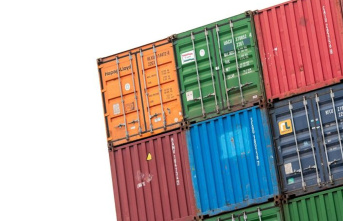According to a study, Germany's companies must significantly increase their investments in climate protection so that the Federal Republic can achieve the goals it has set itself.
According to a survey by the state development bank KfW among around 11,000 companies of all sizes, the economy invested a total of around 55 billion euros in domestic climate protection measures in 2021. "More than doubling is necessary for the goal of climate neutrality," said KfW chief economist Fritzi Köhler-Geib on Tuesday in Frankfurt.
According to KfW, every eighth euro of the total investment by German companies of 433 billion euros last year went into energy transition projects. "A lot is happening, but more has to happen," said Koehler-Geib. In order to achieve climate neutrality in Germany by 2045, total investments of around 5 trillion euros are necessary. Private companies alone would have to make annual investments of 120 billion euros.
According to the survey, the vast majority of companies that invested in climate protection in 2021 spent a rather manageable amount on it. For small companies, the average was 23,000 euros. Larger medium-sized companies with more than 50 employees and a maximum annual turnover of 500 million euros averaged 251,000 euros.
Climate-friendly mobility
Companies most frequently put money into measures for climate-friendly mobility (47 percent), followed by improvements in the energy efficiency of their buildings, for example through insulation or the installation of heat pumps (32 percent). In third place were measures to generate or store renewable energy (27 percent).
More than half of the companies surveyed have at least partially anchored climate protection in their corporate strategy. However, concrete targets for reducing greenhouse gases (13 percent) and knowing one's own carbon footprint (16 percent) have so far been the exception. According to this, only one in ten companies is striving for climate neutrality, even if this goal is to be achieved nationwide in Germany by 2045.
According to Köhler-Geib, the current energy crisis has opposite effects on the willingness to invest in climate protection measures. "On the one hand, the currently high energy prices for fossil fuels create greater incentives for switching to renewable energies and improving energy efficiency," explained the chief economist. On the other hand, the extreme uncertainty about the economic consequences of the energy crisis means that investment plans are often postponed or abandoned in the current year. "Climate protection investments are also likely to be affected."
KfW climate barometer







